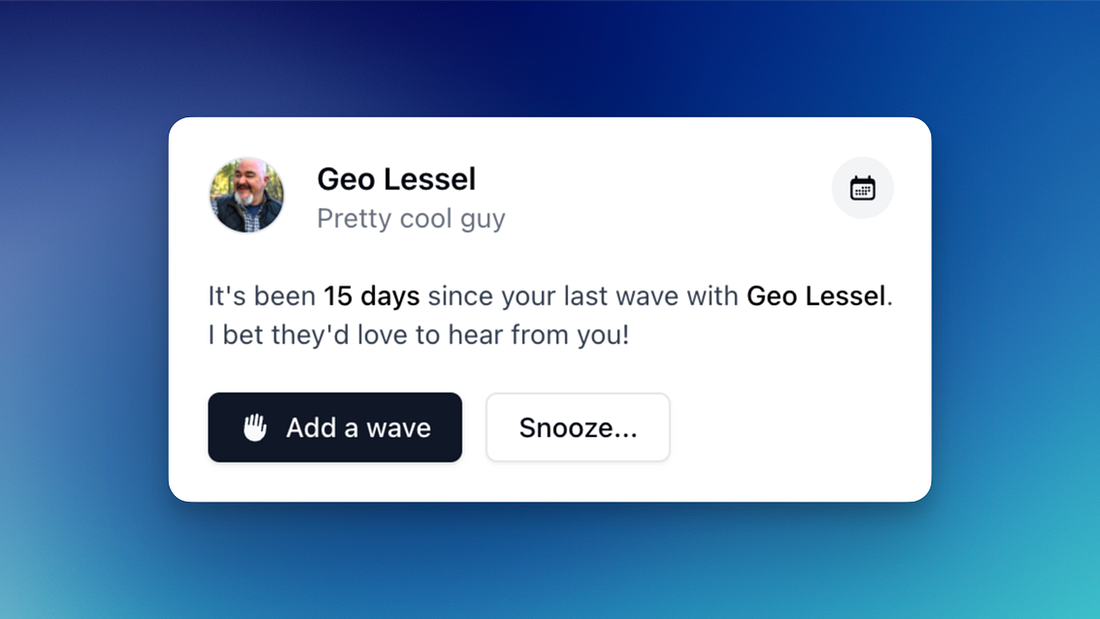I Didn’t Know I Was Supposed to Feel Shame—The Power of Inclusive Workplaces
Welcome to Extra Focus, this newsletter and community is supported by other readers just like you. It would be amazing if you would consider becoming a paid subscriber for $8/month—just $1.53/week if you pick an annual subscription! You’ll unlock every article (250+) in the nearly 4-year archive (dating back to early 2021) and gain full access to the Member Resource Hub. Thanks! I’m super excited to share this guest column by Lisa Lewis. Lisa Lewis, CPHR, is an HR professional, behavioral science enthusiast, and the founder of MindMosaic Inclusive HR—a company that specializes in neurodiversity and inclusion in the workplace. I asked if she share her knowledge and experience about the power of an inclusive workplace that not only accommodates, but embraces diverse voices and experiences. Enjoy! I Didn’t Know I Was Supposed to Feel Shame—The Power of Inclusive Workplaces I started my business, MindMosaic Inclusive HR, to support neurodivergent individuals in the workplace. I wanted to help them be understood, understand themselves better, and access the tools and frameworks that support different ways of thinking. I wanted to ensure that others didn’t have to go through what I did in my earlier years—feeling inadequate in systems that weren’t designed for minds like mine. As someone diagnosed with ADHD at 40, later discovering I’m also dyslexic and likely autistic, I’ve spent the last ten years deep-diving into how different brains work. For years, I willed my brain to do what I saw others doing. When I finally understood how different neurotypes process information and work best, everything changed. I realized that with the right information, all minds can be happy and productive. That’s when I discovered Universal Design—the idea that we can create flexible, accessible spaces and systems that allow everyone to work at their best without needing to ask for permission. I fell in love with this concept because it just is—no red tape, no medical notes—just simple, built-in supports that benefit everyone. Discovering Universal Design (Backwards, Of Course)I stumbled into the connection between neurodivergence and universal design in a backward sort of way. For nearly 15 years, I worked for service providers supporting neurodivergent youth. Our team was a mix of clinicians and therapists, most of whom were neurodivergent themselves. I like to call it “Unicorn Land”—a place where individual needs weren’t debated; flexibility and support were just available. And it was no big deal. Typically, my cornucopia of neurotypes would struggle in a traditional workplace, but in Unicorn Land, none of that mattered. I worked hybrid before hybrid was a thing—two days in the office, where I thrived on social energy, and the rest of the week working in my PJs, deep in focused, heads-down work. If I needed support? No problem. I had neurodivergent clinicians at my fingertips.
There were no rigid expectations about where or when we worked. Adjustments weren’t accommodations—they were just part of the workplace. From Unicorn Land to EDI & Workplace DesignWhen I went back to university for Equity, Diversity, and Inclusion (EDI), I finally learned the theory behind what I had been living. Intersectionality, universal design, valuing people as whole individuals—it all clicked. Later, when I began working as a consultant, I was surprised when people told me they admired how open I was about my ADHD and that I didn’t feel ashamed. But why would I? In Unicorn Land, everyone was open about their strengths AND their weaknesses. We worked together to ensure that everyone had what they needed to be successful. No one was made to feel “less than.” My workplace wasn’t designed to fix people—it was designed to support them. And it worked. Really well. Neurodivergent Teams Make Businesses BetterThere are mountains of research showing the benefits of neurodiverse teams. But when you build a team with a mix of thinkers and abilities, the magic happens when you focus on how the whole team benefits. I once ran an HR workshop, and during introductions, someone said they had sent them to find out “the bare minimum legal accommodations” they had to provide. I get it. It’s hard to support what you don’t understand. I hate to admit it, but I once didn’t hire someone because I felt too busy to adjust my training process. After some reflection, I realized that there’s something more challenging than supporting that person. It is being that person. Equity isn’t about treating everyone the same—because we aren’t the same. A Shift in Thinking: It’s Not About Medical NotesSupporting employees shouldn’t require them to prove they deserve it. Workplaces are moving away from requiring medical documentation, and it makes sense. What about the people who don’t even know they’re neurodivergent? What about the cost of diagnosis? The long waitlists? The fear of disclosure? The surprising thing is,
The real barrier isn’t the cost; it’s the fear of asking. What good is an accommodation if someone’s too afraid to ask for it? How do you foster innovation if people are scared to speak up? When people feel safe being who they are and have the support they need, they work hard and stick around. This trust cycle fuels success, retention, and engagement. Equity isn’t about treating everyone the same—because we aren’t the same. When we create flexible, supportive workplaces, we improve work for everyone. After all, the best workplaces don’t just accommodate differences—they celebrate them. Recently, I connected with Sam, a tech leader in Australia who embraces universal design in her organization. She told her team:
Isn’t that beautiful? — Lisa Lewis Hey reader, it’s Jesse again, I wanted to quickly share a sneak peak of what we’ve been doing with Wavepal lately: One of the things we’re really focusing on is how to ensure that Wavepal can provide helpful reminders and nudges, without ever feeling overwhelming or guilt-inducing. Nobody wants an app that’s just a wall of reminders of things you haven’t done. It’s going to be a journey finding the right balance of this, but something we’re really taking seriously—we plan to listen very carefully to our early users to make sure we get it right. Speaking of, if you want to potentially be one of those early users, join the waitlist! This newsletter is supported by readers like you! Become a paid supporter to unlock every article in the archive and gain full access to the Member Resource Hub. |
Similar newsletters
There are other similar shared emails that you might be interested in:





